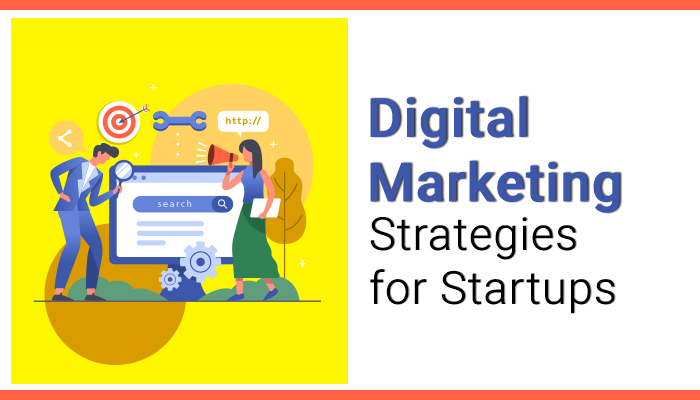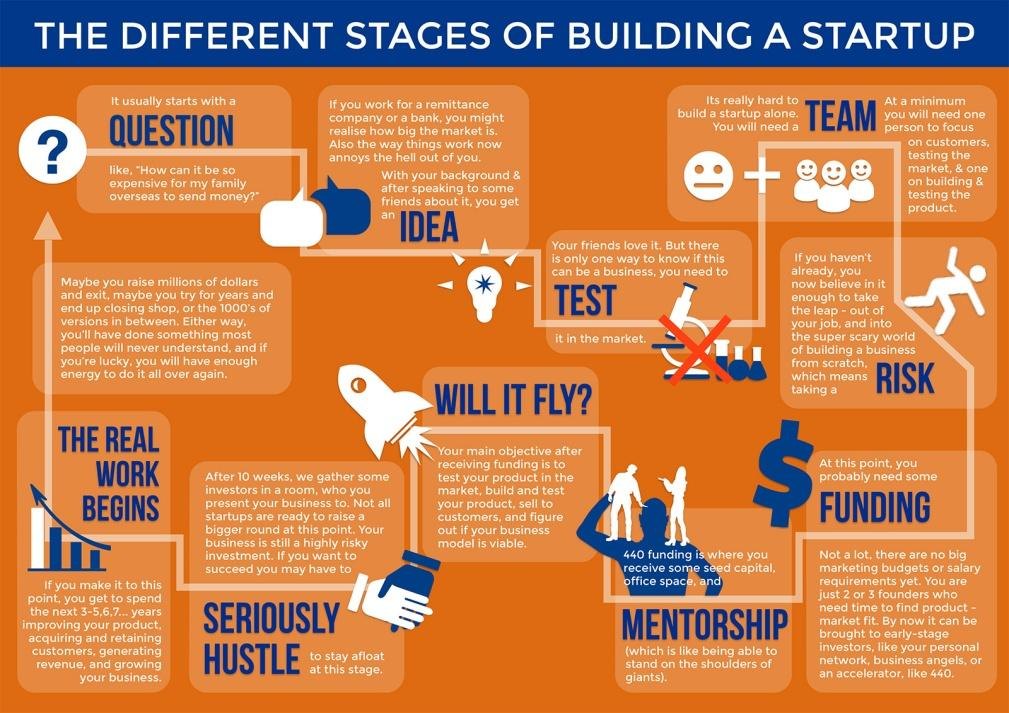Why Traditional Marketing Strategies Fall Short for Tech Startups
Traditional marketing strategies often fail to deliver the desired results for tech startups due to their rigid and inflexible nature. These approaches typically rely on outdated methods, such as cold calling, print advertising, and generic email marketing campaigns. However, tech startups require a more agile and adaptive approach to marketing, one that can keep pace with the rapid evolution of their products and services.
In today’s fast-paced digital landscape, tech startups need to be able to experiment, iterate, and pivot quickly in response to changing market conditions. Traditional marketing strategies, on the other hand, often involve lengthy planning cycles, significant upfront costs, and limited flexibility. This mismatch between the needs of tech startups and the capabilities of traditional marketing strategies can lead to disappointing results and a significant waste of resources.
Furthermore, traditional marketing strategies often focus on pushing products or services onto customers, rather than understanding their needs and preferences. This approach can lead to low engagement rates, poor conversion rates, and a lack of brand loyalty. In contrast, effective tech startup marketing strategies prioritize customer-centricity, using data and analytics to gain a deeper understanding of their target audience and develop tailored marketing campaigns that resonate with them.
Growth hacking techniques, on the other hand, offer a more effective approach to marketing for tech startups. By leveraging data-driven insights, creative problem-solving, and rapid experimentation, growth hackers can develop innovative marketing strategies that drive real results. Whether it’s through viral marketing campaigns, influencer partnerships, or optimized user experiences, growth hacking techniques can help tech startups achieve rapid growth and scale.
By adopting a growth hacking mindset, tech startups can overcome the limitations of traditional marketing strategies and develop a more effective approach to reaching and engaging their target audience. By prioritizing customer-centricity, creativity, and data-driven decision-making, tech startups can unlock new opportunities for growth and success in today’s competitive digital landscape.
How to Develop a Winning Value Proposition for Your Tech Startup
A well-crafted value proposition is the foundation of any successful tech startup marketing strategy. It clearly communicates the unique benefits and value that your product or service offers to your target audience. A winning value proposition is essential for differentiating your startup from competitors, building brand loyalty, and driving customer acquisition.
To develop a winning value proposition, start by identifying your startup’s core benefits and differentiators. What sets your product or service apart from others in the market? What unique features or functionalities do you offer that address specific pain points or needs of your target audience? Be specific and focus on the benefits that your startup provides, rather than just listing features.
Next, define your key messaging and unique selling proposition (USP). Your USP should clearly articulate the value that your startup offers and why it’s the best solution for your target audience. Use simple, concise language that resonates with your audience and avoids jargon or technical terms that may confuse them.
For example, a tech startup that offers a project management tool might develop a value proposition that looks like this: “Our project management tool helps teams work more efficiently and effectively, reducing project timelines by up to 30% and increasing productivity by up to 25%. With our intuitive interface and real-time collaboration features, teams can focus on what matters most – delivering high-quality results and driving business success.”
Once you have developed your value proposition, use it consistently across all your marketing channels, including your website, social media, content marketing, and paid advertising. This will help to reinforce your brand message and build recognition with your target audience.
In addition to developing a winning value proposition, it’s also essential to understand your target audience and their needs. Use data and analytics to gain insights into their behavior, preferences, and pain points. This will help you to tailor your value proposition and marketing strategies to resonate with your audience and drive real results.
By developing a winning value proposition and understanding your target audience, you can create a solid foundation for your tech startup marketing strategies and drive long-term success.
Leveraging Content Marketing to Fuel Your Tech Startup’s Growth
Content marketing is a powerful tool for tech startups looking to fuel their growth and reach new audiences. By creating high-quality, relevant, and consistent content, startups can establish themselves as thought leaders in their industry, build trust with their target audience, and drive real results.
One of the key benefits of content marketing is its ability to attract and engage with potential customers at every stage of the buyer’s journey. Whether it’s through blog posts, videos, podcasts, or social media, content marketing provides a way to educate and inform your audience, building a relationship with them and establishing your startup as a trusted resource.
So, what types of content should your tech startup be creating? The answer will depend on your target audience and their preferences, but some popular formats include:
Blog posts: In-depth articles that provide valuable insights and information on topics relevant to your audience.
Videos: Engaging and informative videos that showcase your product or service, provide tutorials, or offer thought leadership.
Podcasts: Audio content that provides a unique perspective or insight into your industry, featuring interviews with experts or thought leaders.
Social media: Short-form content that provides updates, news, and insights into your startup and its activities.
When it comes to creating effective content marketing strategies, there are a few key things to keep in mind. First, focus on quality over quantity. It’s better to create a smaller amount of high-quality content that resonates with your audience than to churn out large quantities of low-quality content that fails to engage.
Second, make sure your content is optimized for search engines. This means using relevant keywords, meta descriptions, and optimizing images to help your content rank higher in search engine results pages (SERPs).
Finally, don’t forget to measure and track the performance of your content marketing efforts. Use analytics tools to track engagement, conversions, and other key metrics, and adjust your strategy accordingly.
By incorporating content marketing into your tech startup marketing strategies, you can build a strong foundation for growth and establish your startup as a thought leader in your industry.
Building a Strong Online Presence through SEO and Social Media
In today’s digital landscape, having a strong online presence is crucial for tech startups looking to reach new audiences and drive growth. Two key components of a strong online presence are search engine optimization (SEO) and social media marketing.
SEO is the process of optimizing your website to rank higher in search engine results pages (SERPs) for specific keywords and phrases. This is important because it allows your startup to increase its visibility and reach a larger audience. By optimizing your website for search engines, you can drive more traffic to your site, increase conversions, and ultimately drive growth.
To optimize your website for search engines, focus on creating high-quality, relevant content that includes your target keywords. Use header tags, meta descriptions, and optimize images to help search engines understand the structure and content of your site. Additionally, build high-quality backlinks from other reputable sites to increase your site’s authority and ranking.
Social media marketing is also a critical component of a strong online presence. By creating engaging content and building a community on social media platforms, you can increase brand awareness, drive website traffic, and generate leads. Focus on creating content that resonates with your target audience, and use paid social media advertising to reach a larger audience and drive conversions.
When it comes to social media marketing, it’s essential to have a clear strategy in place. Identify your target audience, create content that resonates with them, and engage with them regularly. Use social media analytics tools to track your performance, and adjust your strategy accordingly.
Some popular social media platforms for tech startups include Twitter, LinkedIn, and Facebook. Each platform has its unique features and audience, so it’s essential to understand which platforms are best for your startup and create content that resonates with each audience.
By combining SEO and social media marketing, you can create a strong online presence that drives growth and helps your tech startup reach new audiences. Remember to focus on creating high-quality content, engaging with your audience, and using data analytics tools to track your performance and adjust your strategy accordingly.
The Power of Influencer Marketing for Tech Startups
Influencer marketing has become a crucial component of tech startup marketing strategies, offering a powerful way to reach new audiences, build brand awareness, and drive conversions. By partnering with influencers who have a genuine interest in your startup’s products or services, you can tap into their existing audience and credibility, increasing your reach and impact.
One of the key benefits of influencer marketing is its ability to build trust and credibility with your target audience. When an influencer endorses your startup, it’s like a personal recommendation to their followers, who are more likely to trust their opinion and take action. Additionally, influencer marketing can help you reach a wider audience, including people who may not have been exposed to your startup otherwise.
To get started with influencer marketing, identify influencers who align with your startup’s values and target audience. Look for influencers who have a genuine interest in your products or services, and who have a track record of creating high-quality content that resonates with their audience. Reach out to them and propose a collaboration, whether it’s a sponsored post, product review, or other type of content.
When selecting influencers, consider their audience demographics, engagement rates, and content quality. Look for influencers who have a highly engaged audience, and who create content that is relevant and valuable to your target audience. Also, consider the influencer’s credibility and reputation in the industry, as well as their past collaborations and reviews.
Some popular influencer marketing platforms for tech startups include AspireIQ, HYPR, and Upfluence. These platforms provide a range of tools and services to help you find and collaborate with influencers, including influencer discovery, outreach, and campaign management.
When working with influencers, be sure to clearly communicate your goals and expectations, and provide them with the necessary resources and support to create high-quality content. Also, be transparent about your partnership and disclose any sponsored content to comply with regulatory requirements.
By incorporating influencer marketing into your tech startup marketing strategies, you can build brand awareness, drive conversions, and reach new audiences. Remember to select influencers who align with your values and target audience, and to clearly communicate your goals and expectations to ensure a successful collaboration.
Measuring and Optimizing Your Tech Startup’s Marketing Performance
Measuring and optimizing your tech startup’s marketing performance is crucial to understanding the effectiveness of your marketing strategies and making data-driven decisions to improve your return on investment (ROI). By tracking key performance indicators (KPIs) and metrics, you can gain valuable insights into your marketing efforts and identify areas for improvement.
Some common KPIs and metrics to track for tech startups include website traffic, social media engagement, lead generation, conversion rates, and customer acquisition costs. By monitoring these metrics, you can understand how your marketing efforts are impacting your business and make adjustments to optimize your strategies.
Data analytics tools such as Google Analytics, Mixpanel, and HubSpot can help you track and analyze your marketing performance. These tools provide a range of features and functionalities to help you measure and optimize your marketing efforts, including data visualization, segmentation, and A/B testing.
When using data analytics tools, it’s essential to set clear goals and objectives for your marketing efforts. This will help you focus on the metrics that matter most to your business and ensure that you’re tracking the right KPIs. Additionally, be sure to regularly review and analyze your data to identify trends, patterns, and areas for improvement.
One of the most effective ways to optimize your marketing performance is through A/B testing. By testing different versions of your marketing campaigns, you can identify which elements are driving the best results and make data-driven decisions to improve your ROI. A/B testing can be applied to a range of marketing channels, including email marketing, paid advertising, and social media.
Another key aspect of optimizing your marketing performance is through customer feedback and surveys. By gathering feedback from your customers, you can gain valuable insights into their needs, preferences, and pain points. This information can be used to inform your marketing strategies and ensure that you’re delivering value to your customers.
By measuring and optimizing your tech startup’s marketing performance, you can ensure that your marketing efforts are driving real results and improving your ROI. Remember to track key KPIs and metrics, use data analytics tools, and regularly review and analyze your data to identify areas for improvement.
Scaling Your Tech Startup’s Marketing Efforts for Sustainable Growth
As your tech startup grows, it’s essential to scale your marketing efforts to maintain momentum and drive sustainable growth. Scaling your marketing efforts requires a strategic approach, including expanding your team, outsourcing tasks, and leveraging technology to streamline processes.
One of the most critical aspects of scaling your marketing efforts is expanding your team. As your startup grows, you’ll need to hire more marketers to handle the increased workload. When hiring new team members, look for individuals with a range of skills, including content creation, social media management, and data analysis.
Outsourcing tasks is another effective way to scale your marketing efforts. By outsourcing tasks such as content creation, social media management, and email marketing, you can free up internal resources to focus on high-level strategy and creative direction. When outsourcing tasks, be sure to clearly communicate your goals and expectations to ensure that the work meets your standards.
Leveraging technology is also crucial for scaling your marketing efforts. Marketing automation tools, such as Marketo and HubSpot, can help streamline processes and improve efficiency. These tools allow you to automate repetitive tasks, such as email marketing and lead nurturing, freeing up internal resources to focus on more strategic activities.
Another key aspect of scaling your marketing efforts is measuring and optimizing your marketing performance. By tracking key performance indicators (KPIs) and metrics, you can gain valuable insights into your marketing efforts and identify areas for improvement. Use data analytics tools to track your KPIs and metrics, and adjust your marketing strategies accordingly.
Finally, it’s essential to stay adaptable and agile when scaling your marketing efforts. As your startup grows, your marketing strategies will need to evolve to meet changing market conditions and customer needs. Stay up-to-date with the latest marketing trends and best practices, and be willing to pivot your strategies as needed.
By scaling your marketing efforts effectively, you can drive sustainable growth and maintain momentum for your tech startup. Remember to expand your team, outsource tasks, leverage technology, measure and optimize your marketing performance, and stay adaptable and agile.
Staying Ahead of the Curve: Emerging Trends in Tech Startup Marketing
The tech startup marketing landscape is constantly evolving, with new trends and innovations emerging all the time. To stay ahead of the curve, it’s essential to keep up-to-date with the latest developments and adapt your marketing strategies accordingly.
One of the most significant emerging trends in tech startup marketing is the use of artificial intelligence (AI). AI can help startups personalize their marketing efforts, automate repetitive tasks, and gain valuable insights into their target audience. By leveraging AI, startups can improve their marketing efficiency, reduce costs, and drive better results.
Another emerging trend is account-based marketing (ABM). ABM involves targeting specific accounts and decision-makers with personalized content and messaging. By using ABM, startups can build stronger relationships with their target audience, increase brand awareness, and drive conversions.
Experiential marketing is also becoming increasingly popular among tech startups. Experiential marketing involves creating immersive, memorable experiences for customers and prospects. By using experiential marketing, startups can build brand loyalty, increase engagement, and drive word-of-mouth marketing.
Virtual and augmented reality (VR/AR) is another emerging trend in tech startup marketing. VR/AR can help startups create immersive, interactive experiences for customers and prospects. By using VR/AR, startups can increase engagement, build brand awareness, and drive conversions.
To stay ahead of the curve, it’s essential to keep up-to-date with the latest trends and innovations in tech startup marketing. Attend industry events, read industry publications, and follow thought leaders on social media to stay informed. By staying ahead of the curve, you can adapt your marketing strategies to changing market conditions and drive better results for your startup.
By incorporating emerging trends and innovations into your tech startup marketing strategies, you can stay ahead of the competition and drive sustainable growth. Remember to keep up-to-date with the latest developments, adapt your strategies accordingly, and always keep your target audience in mind.






